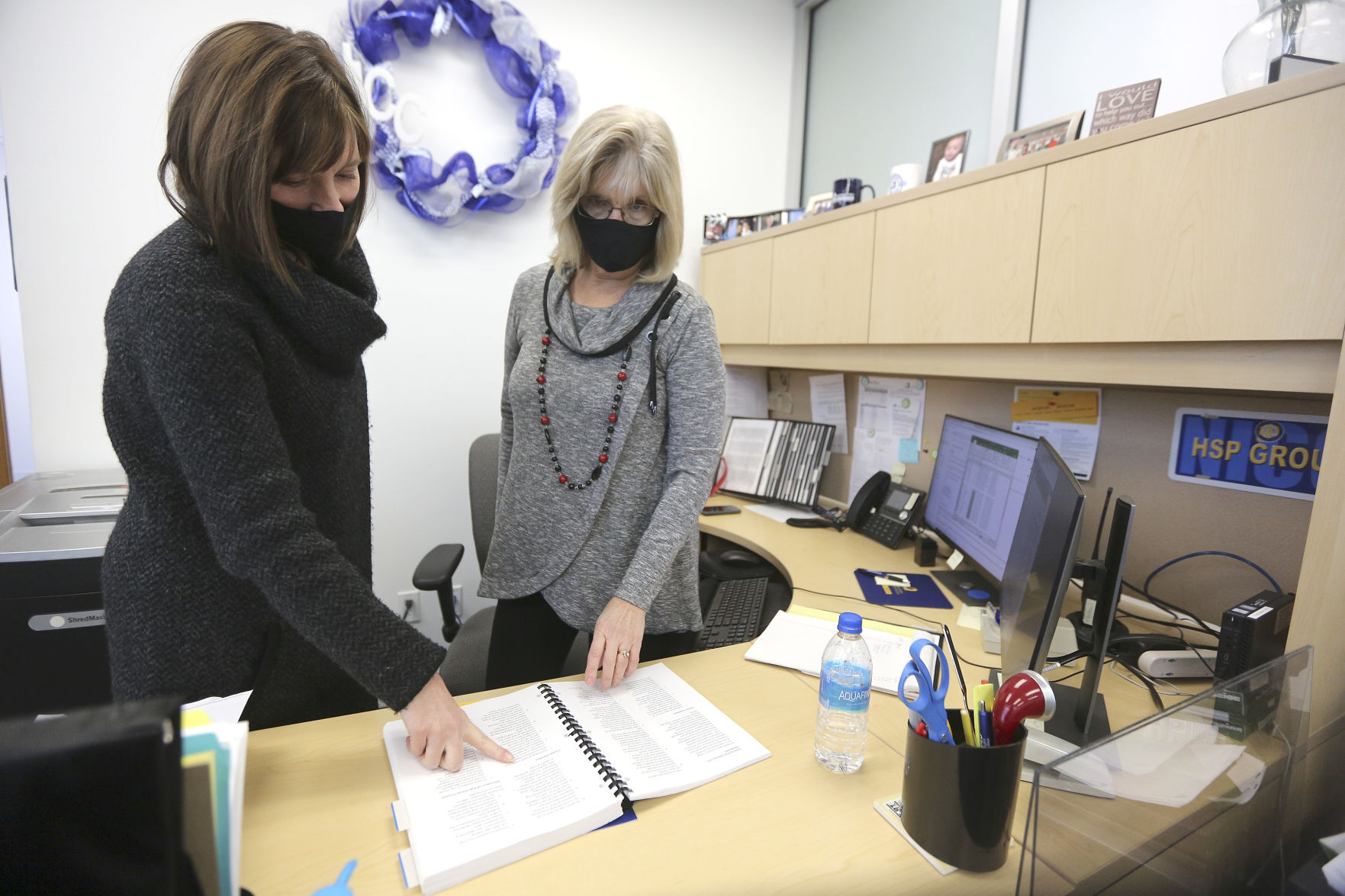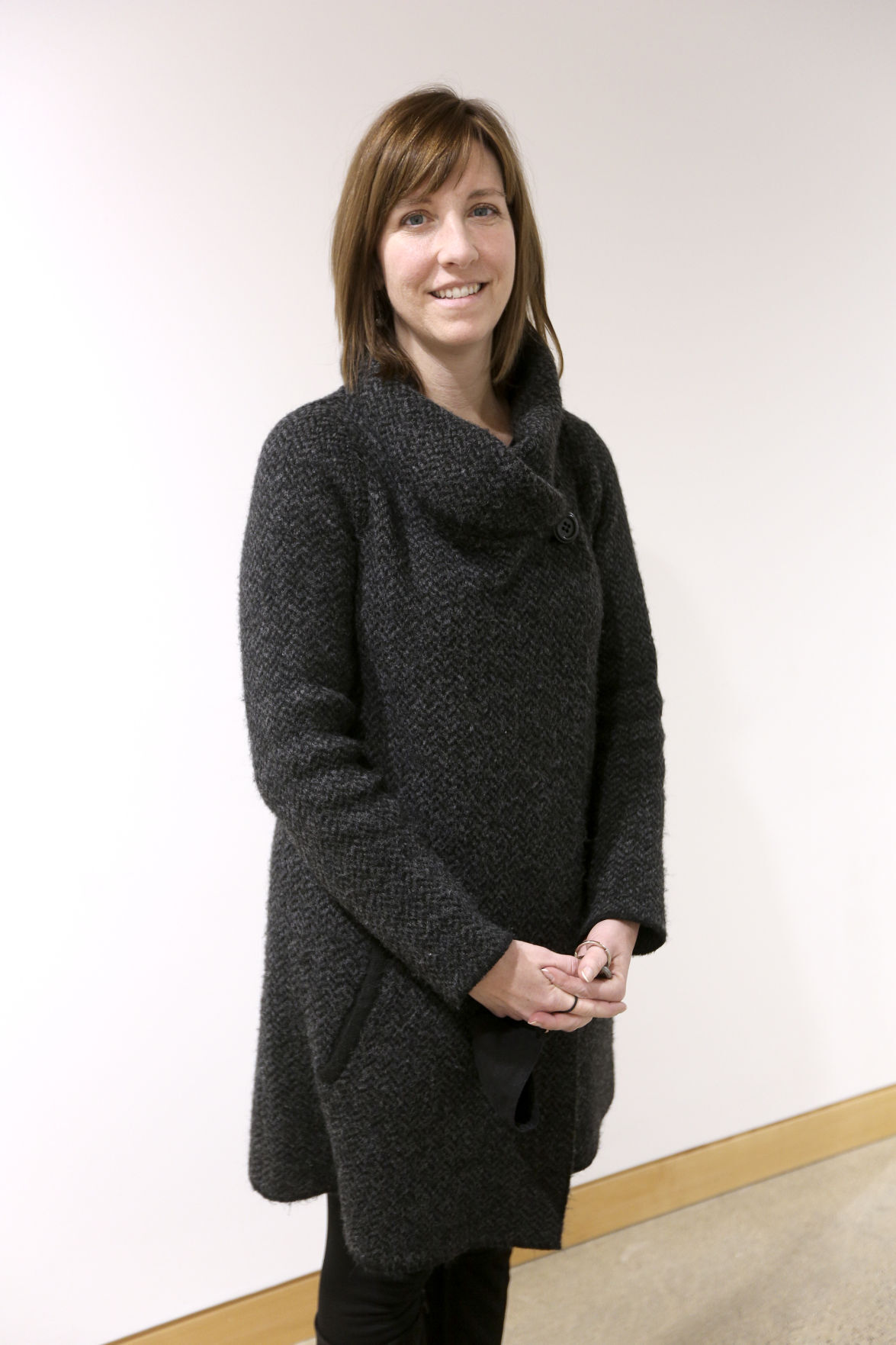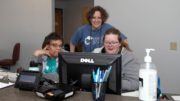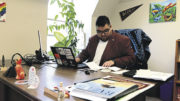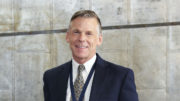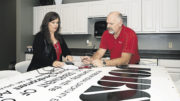Katie Gilbert, Dean of High School Partnerships at Northeast Iowa Community College
Katie Gilbert has worked at Northeast Iowa Community College for 14 years, developing college credit opportunities for high school students with more than 25 partner school districts.
Gilbert has served on the Iowa Concurrent Coordinators Group in various leadership roles and serves as a mentor and peer reviewer with the National Alliance of Concurrent Enrollment Partnerships, with whom the High School Partnership program at Northeast Iowa Community College has been accredited since 2012.
In her spare time, she loves reading and spending time in nature with her husband and two sons.
Can you name a person who has had a tremendous impact on you as a leader?
There are quite a few people who have significantly impacted me as a leader. Most important were my parents: Tom and Donna Beadle. Throughout my childhood, they taught me incredibly valuable lessons in integrity and honesty and they led by example. They demonstrated individual and civic responsibility, as well as how to be empathic and caring of others.
Next most influential has been my current boss, Dr. Kathleen Nacos-Burds. She has helped me grow as a leader at Northeast Iowa Community College in the field of higher education through her servant leadership, challenging me and helping me develop a diverse set of skills. Her drive and solution-oriented process thinking, as well her genuine care for our students and the communities we serve, is something I strive to emulate. She always is a resource for me when I need guidance.
Finally, Dr. Seth Gilbert, my husband, has had a tremendous impact on my leadership development. We met through an educational leadership program in Iowa. We discovered a mutual passion for personal and professional development research. He is an extremely supportive partner who significantly contributes to my professional leadership study and application. (Date nights continue to find us enjoying a lively conversation on these topics over a glass of wine.)
What are the most important decisions you make as a leader of your organization? Decisions related to student outcomes tend to be the most important. In my current role, these occur from the broad programmatic level to the individual student level on a daily basis; it makes my work very engaging and diverse. At the end of the day, these decisions are driven by our mission at the college of improving lives while advancing our communities.
As an organization gets larger, there can be a tendency for the “institution” to dampen the “inspiration.” How do you keep this from happening? I honestly haven’t experienced that at Northeast Iowa Community College. I think this is in part because our culture supports my department as we continually adapt to the needs of our communities and high school partners. We’ve always been encouraged to be innovative in addressing challenges or developing new programming and partnerships to help meet mutually agreed-upon goals.
Which is more important to your organization — mission, core values or vision? From my experience, our mission at NICC has been the driver of our vision and values as we work to partner with schools to provide in-demand education and training, serve students and be focused on improving lives through their learning and career exploration pathways. We are advancing community vitality as a result.
What is one characteristic that you believe every leader should possess? I remember considering this question when I was working on the capstone course in my undergraduate education with Dr. Rick Stinchfield at UNI, through my participation in Iowa State’s Educational Leadership program with Dr. Larry Ebbers and frequently throughout my Master of Arts in communication program at the University of Dubuque with Dr. Robert Reid. There are many important characteristics leaders should possess, but I think the most important for me continues to be integrity. If you build a foundation from a place of honesty and sincerity, everything else flows from that initial point of integrity.
What advice do you have for future leaders? I’ve found being transparent in my decisions has helped the partners I work with understand my thought process, all the factors that contributed to the decision and my best attempt to be equitable in the final outcome. As a result, the people I work with have gotten to know me and how I address questions or challenges as a result. They know that I’ve listened, understood them accurately and taken their concerns and suggestions into consideration.
Additionally, leaders need to be empathic and kind in their interactions with others. Many people we interact with or serve have a lot of “life” going on outside of your interaction with them. How we treat others or what we do to uplift them creates a ripple effect in our community. People will remember that feeling and, hopefully, pass it along.
What lessons can leaders take away from the current pandemic? We are more flexible than we thought we could be, and we are incredibly creative problem solvers, both individually and collectively. I’ve never been more proud of the instructors who teach in our program and the administrators who lead them. They are the most creative, caring, hardworking and dedicated group of professional educators I’ve known. We worked collaboratively last spring to ensure student learning was maintained and we dove headfirst into new technology and teaching techniques to ensure student learning thrived for this academic year. Challenges brought out the best in us, and we now have exciting tools and techniques we will continue to use and adapt for all students on a regular basis to better meet their needs and learning goals.
We also learned to be more compassionate toward each other. I’ve noticed a significant positive change in interactions that I believe will continue. We’ve suddenly been invited into people’s homes through video-conferencing tools and have learned more about those we work with — this contributed to remarkably positive relationship experiences.
What are two or three of the best things about being a leader? I’ve enjoyed watching as a concept becomes a reality and knowing I played a role, whether it was simply getting the right resources to someone who needed them, connecting the dots to make a project succeed or giving encouragement to interconnected players to help them reach a collaborative partnership.
I’ve also enjoyed having the opportunity to help other leaders grow. It is exciting to be a resource and support for others by introducing new challenges to them, helping them recognize and celebrate success, or helping to create learning and development plans to help them meet their goals.


